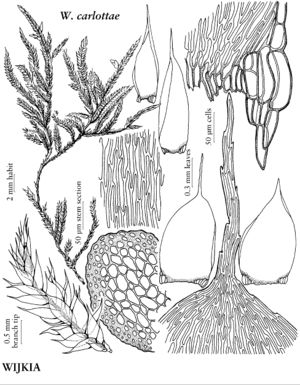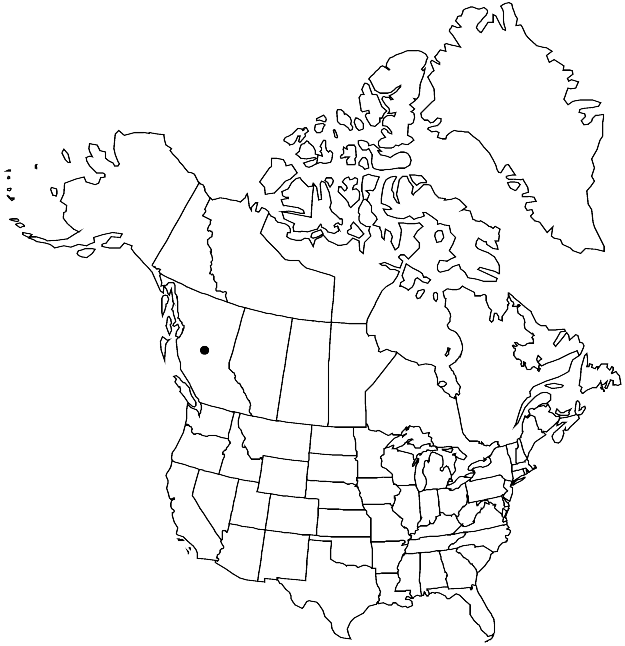Difference between revisions of "Wijkia carlottae"
Bryologist 74: 171. 1971.
EndemicIllustrated
Basionym: Acanthocladium carlottae W. B. Schofield Bryologist 69: 336, figs. 1 – 6. 1966
Treatment appears in FNA Volume 28. Treatment on page 583.
imported>Volume Importer |
imported>Volume Importer |
||
| Line 57: | Line 57: | ||
|publication year=1971 | |publication year=1971 | ||
|special status=Endemic;Illustrated | |special status=Endemic;Illustrated | ||
| − | |source xml=https:// | + | |source xml=https://bitbucket.org/aafc-mbb/fna-data-curation/src/2e0870ddd59836b60bcf96646a41e87ea5a5943a/coarse_grained_fna_xml/V28/V28_915.xml |
|genus=Wijkia | |genus=Wijkia | ||
|species=Wijkia carlottae | |species=Wijkia carlottae | ||
Latest revision as of 21:39, 5 November 2020
Plants brown to yellowish when old. Stems creeping to arched, sharply pointed at stem and branch apices, branches 0.2–1.5 cm, terete-foliate; pseudoparaphyllia foliose, deltoid, 0.5–1.5 mm wide. Stem leaves concave, 1 × 0.5 mm excluding acumen; acumen piliferous, 0.5+ mm. Specialized asexual reproduction unknown. Sporophytes unknown.
Habitat: Shaded rock, humid sites
Elevation: low elevations (0-100 m)
Discussion
Wijkia carlottae, found in the Queen Charlotte Islands and Haida Gwaii, is closely related to W. tanytricha (Montagne) H. A. Crum of southeastern Asia, and the plants differ mainly in size and habit. Its exclusively vegetative reproduction indicates a clone that is slowly disseminated, because sporophytes and specialized vegetative reproduction are lacking.
Selected References
None.
Lower Taxa
None.

